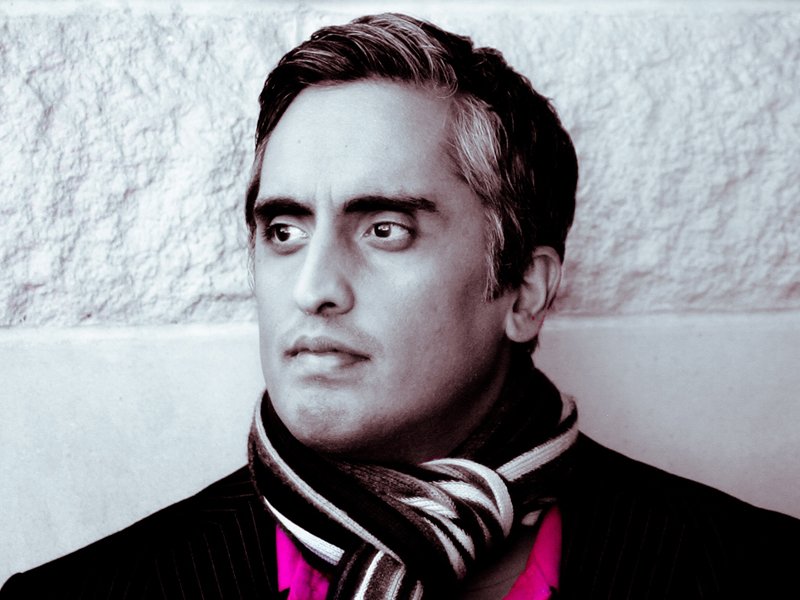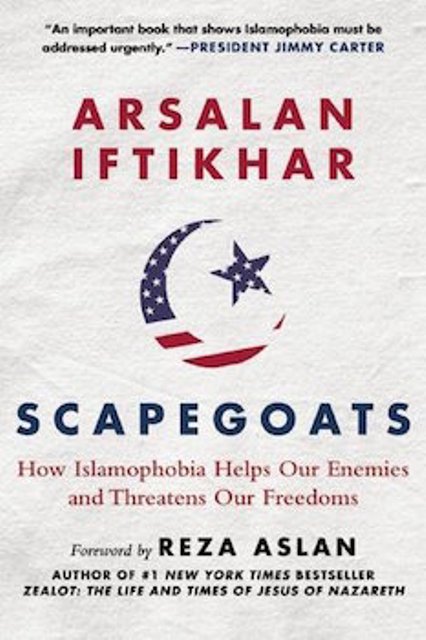″Scapegoats: How Islamophobia helps our enemies and threatens our freedoms″

Why publish "Scapegoats" now?
Arsalan Iftikhar: In an era when anti-Muslim sentiment is increasing in many parts of the Western world, I believed it was important to publish ″Scapegoats: How Islamophobia Helps Our Enemies and Threatens Our Freedoms″ as a way of documenting the rise of Islamophobia over the last two decades – especially since the 9/11 attacks in the United States.
What do you want to readers to come away with having read the book?
Iftikhar: I would like people to understand that every group of people has been a scapegoat at some point during their history. From Anti-Semitism to the African American civil rights movement, every minority demographic group in modern history has faced hatred and ridicule from majority societies. Just as it is important to combat anti-Semitism around the world, we also have an obligation to combat Islamophobia and anti-Muslim hatred around the world as well.
Who did you write the book for?
Iftikhar: The book ″Scapegoats″ was primarily written for a Western audience: it aims to show that the Donald Trump-level of Islamophobia has not manifested itself out of thin air. For instance, though long since forgotten, many conservatives in America post-9/11 publicly demanded that we should ″kill Muslim leaders″ or ″shoot every Muslim that crosses the state line″. This book is a narrative history of Islamophobia from 11 September 2001 until today.
Where did the "Muslim Guy" come from? How did you come to be one of the faces that gets hauled in front of the cameras whenever the media wants a sound bite?

Iftikhar: My website TheMuslimGuy.com actually began as a joke. Whenever I appeared on television, it was usually a right-wing conservative (white male) and I was seen as ″The Muslim Guy″. So I bought the domain name as my website and the brand name has somehow stuck for nearly 10 years.
You talk about Charlie Hebdo, which some saw as an attack on freedom of expression/satire. How was their content any different from that of the late American comedian Lenny Bruce, whose famous comment – "you folk are lucky we killed him when we did or your kids would be walking around wearing electric chairs around their necks" – with regard to Jesus having been killed by the Jews, got him charged for blasphemy in Boston?
Iftikhar: The concept of ″freedom of speech″ is one of the most hot-button issues in the world today. Even in the United States, there is no such thing as ″absolute″ free speech (it is illegal, for instance, to yell ″FIRE!″ in a crowded cinema). Though some European countries have laws against Holocaust denial, it seems as if you can attack Islam and Muslims with impunity and duplicitously hide behind the veneer of ″free speech″.
We saw this with the 2005 Danish cartoon controversy, when it was revealed by the Guardian newspaper in London that the same right-wing Danish newspaper ("Jyllands-Posten") that published the incendiary cartoons of the Prophet Muhammad had refused to publish cartoons lampooning Jesus Christ. There is certainly a ″free speech″ double standard in Western societies today when it comes to Islam and Muslims.
Islamophobia doesn't just exist in Europe or the US – India's government encourages it both indirectly and directly, while China and Russia have always persecuted their Muslim minorities. Is there a difference between what's happening in the States and elsewhere?
Iftikhar: I think the societal persecution of any minority population is completely wrong. The point of the book ″Scapegoats″ is to highlight that virtually every group of people around the world has been oppressed because of their divergent identity. Be they the Hutu-Tutsi divisions which led to the Rwandan genocide or the genocide of Bosnian Muslims in the former Yugoslavia, it is important to keep in mind that dehumanising any group of people can ultimately lead to unconscionable acts, such as those we have seen throughout history.
It seems the tenor of anti-Islam rhetoric is increasing rather than decreasing as time passes – do you attribute that solely to the current political season in the US or are there other factors as well?
Iftikhar: The 2016 presidential election campaign has shown that Islamophobia has become an entrenched part of the Republican Party today. In addition to Donald Trump, we saw other Republican presidential candidates like Senator Ted Cruz, Dr. Ben Carson and Governor Bobby Jindal make outrageous Islamophobic remarks that were never adequately challenged. I believe that Islamophobia is going to continue to play a major role in American society for the foreseeable future.
North America, indeed the western hemisphere, was built on the backs of a multitude of oppressed people – the indigenous population, slaves and working poor. Is Islam simply a new target for this mindset?
Iftikhar: That is the entire point of my book ″Scapegoats″: Muslims are just the latest in a long line of societal scapegoats. That is why it is so important to have allies who will speak out on your behalf, so that when they are being oppressed, you can do the same for them. As a prominent human rights lawyer, I always tell people that the more you can relate to someone′s humanity, the less likely you are to demonise them. That is why it is so important for us to get outside our comfort zones and get to know people who are different from us. We must expand our own horizons.
Interview conducted by Richard Marcus
© Qantara.de 2016
